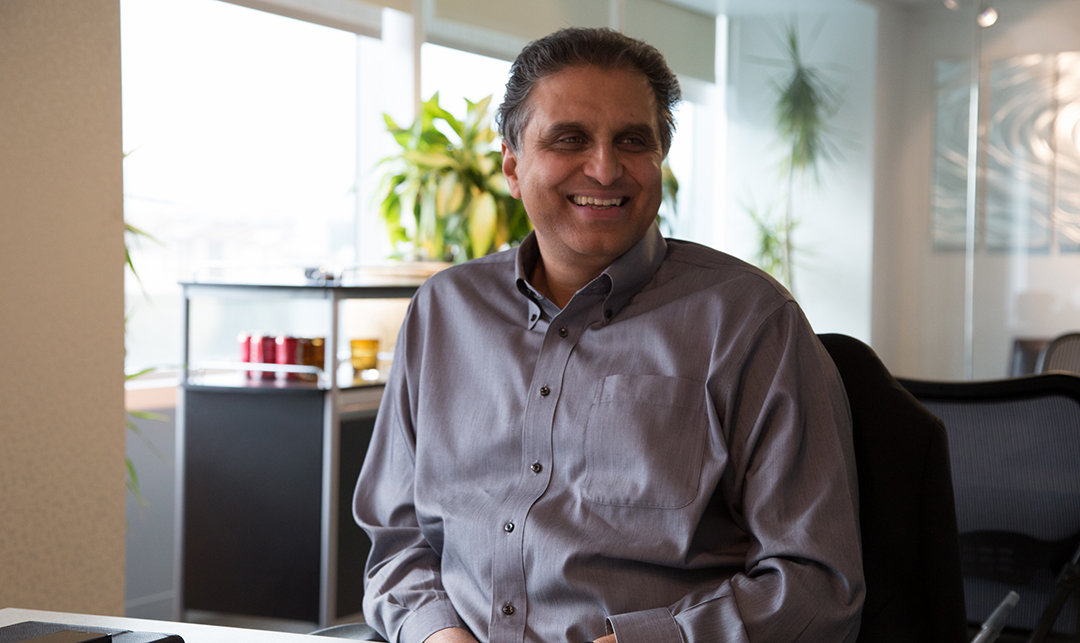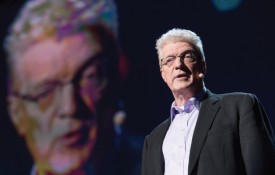One can hardly tune into the news these days without hearing about the Obamacare rollout. Affordable medicine is in fashion, and healthcare concerns are having an increasingly powerful influence not just in politics, but in business as well. Innovators such as Ravi Achar are finding ways to translate success in their business (in his case defense communications) into investment in developing better—and cheaper—medicine for the masses.
Achar, currently CEO of Arnold A. Semler, Inc. (DBA Associated Industries), added a new title to his name in 2006—Co-founder & Managing Director of the Semler Research Center (SRC).
“It happened at a time when defense spending worldwide was taking a hit and our customers weren’t spending so much on defense equipment. So we looked for new verticals to explore.” Achar’s brother-in-law, who at the time worked for Baxter, was the one who introduced him to the pharmaceutical opportunity. “He invited me to a trade show and the thing that stood out to me was how many of the top scientists and researchers were Indian,” he tells us. Having been born and raised in southern India, it was a connection Achar found himself uniquely positioned to benefit from.
International business runs in the Achar family. Achar’s father was one of the earliest members of the Indian defense supply company Bharat Electronics Limited, where he worked in their international office in New York. Meanwhile, young Ravi was completing school, earning a degree in electronics and mechanical engineering at R.V. College in Bangalore, then going on to earn his MBA in finance and information systems at Pace University in New York. After graduation, Achar’s father gave him the names of a few companies to apply to, and that is how he met Arnold Semler, the founder and CEO of Associated Industries (AI).
AI, a 67-year-old company, supplies ground communication to the defense sector and currently does business in 20 different countries. After working his way up through operations and business development, Achar found himself traveling all over the US and the world as their VP. This executive-level experience, as well as his friendship with Arnold Semler (who he describes as his mentor), eventually led to his taking on the role of CEO when Semler passed away in 2001.
“Arnold’s son, my current partner Ronald Semler, has given me a free hand to do what I want with the company, and also the opportunity to explore different verticals,” Achar tells us. He and Ronald have worked together for 12 years and their partnership has yielded great results for both their friendship and the company. AI has branched out into, among other things, data storage, telecom, real estate, and even winemaking (Malibu Family Wines). So in 2005, when Achar stumbled on the pharmaceutical opportunity, he presented it to his partner and was given the go ahead to put it together.
Having generic drugs available and providing low-cost infrastructure for researchers to explore new uses for established drugs allows more people access to the treatments prescribed by their doctors.
“I knew India, I knew the business model, and the risks involved, and I saw an opportunity to do some good.” The result was the Semler Research Center. SRC is a contract research organization (CRO)—drug companies hire them to develop new or generic drugs—with R&D facilities in Bangalore, India. The process is complex, lengthy, and expensive, often requiring reverse engineering, clinical testing, and, of course, FDA approval.
“Being of Indian descent has been a huge help in this case, being able to speak the language and connect on a cultural level. For most Americans that’s a huge barrier of entry.” Historically, companies have turned to India for the cost structures—a generic drug that costs $10M to develop in the U.S. can cost as little as $2M in India—but what has changed is the quality; India boasts Ph.D. level researchers as well as FDA-approved testing and manufacturing facilities on level with what you’d see in the United States.
Now that Obamacare is changing the way people buy their healthcare, a new audience of customers will soon be able to purchase medicine previously out of their reach. Having generic drugs available and providing low-cost infrastructure for researchers to explore new uses for established drugs allows more people access to the treatments prescribed by their doctors.
Achar’s investment helps not just Americans but also European and Indian companies seeking approval for their pharmaceuticals. SRC’s worldwide activities have been successful, and Achar and Semler are considering doing something closer to home next to take advantage of the resources and opportunities here in the US.
“SRC is looking to exit in the next three to five years; that’s the goal,” Achar tells us. “Because of the changing dynamics of the CRO business globally, not to mention the expectations and the cultural differences in management style, it has become challenging to manage the business from LA. SRC can take what we’ve learned and apply it more locally. We’re always looking for new opportunities to take it to the next level.”













































